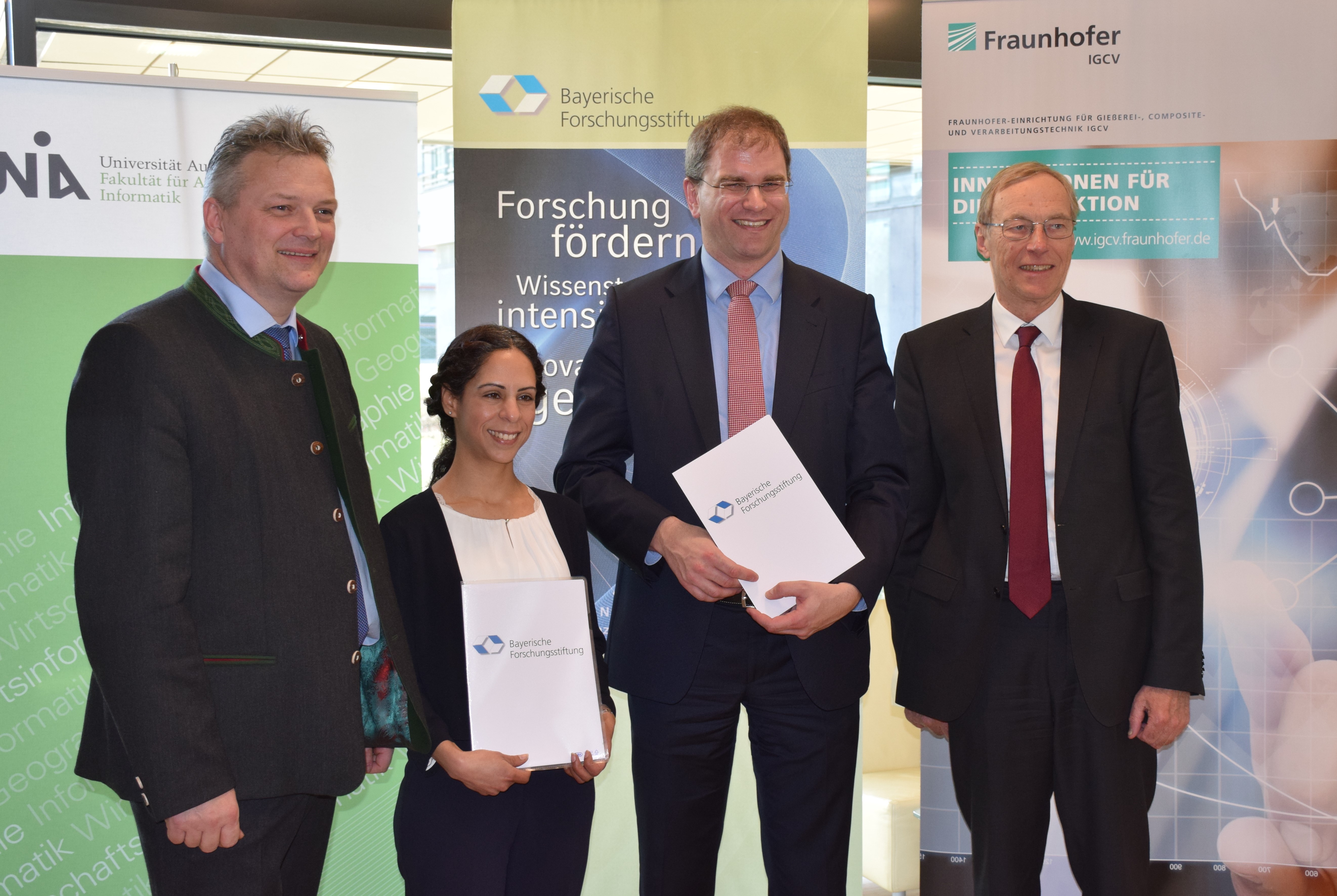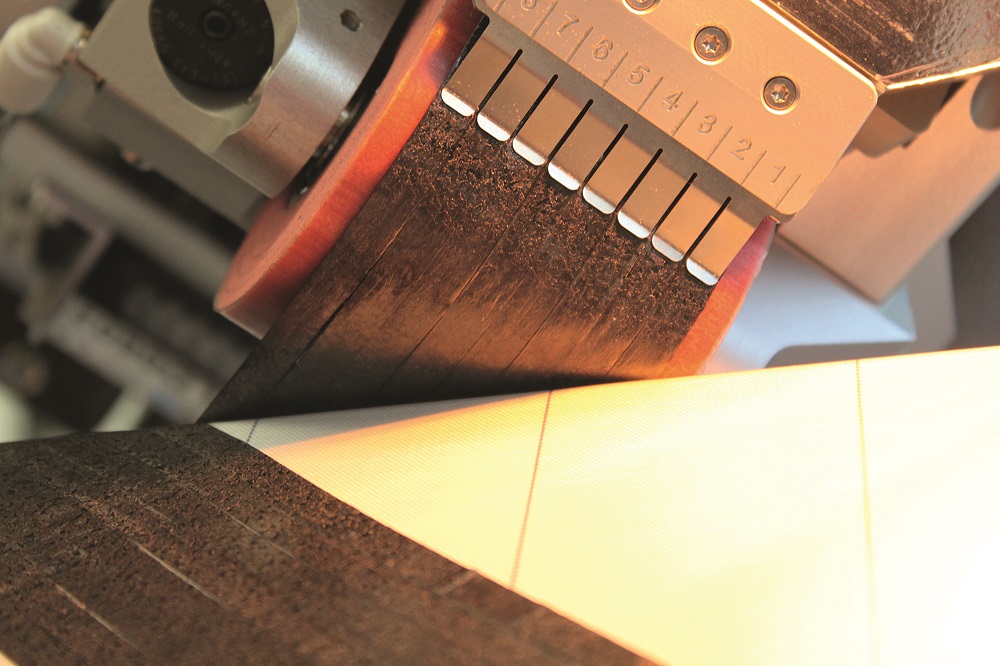Fraunhofer IGCV receives two project approval notices of the Bavarian Research Foundation by State Secretary Roland Weigert
On Wednesday, March 20, 2019, the Fraunhofer Institute for Casting, Composite and Processing Technology IGCV in the Augsburg Technology Center received the funding decisions from the Bavarian Research Foundation for two research projects. The foundation supports the projects »MC-Sandwich« by Prof. Iman Taha and »AutoHybrid« by Prof. Johannes Schilp with a total of 1.3 million euros.
State Secretary Weigert: »With its pronounced materials technology expertise in research and industry, Bavaria today holds a leading position worldwide. New materials are at home in Bavaria. The Fraunhofer IGCV and the University of Augsburg have set up two impressive research projects here. They bring a piece of the future into the present and thus contribute to a continuous and sustainable increase in Bavaria's innovative power and competitiveness as a business location«.
Professor Bode, President of the Bavarian Research Foundation: »The Research Foundation promotes cooperation projects between research institutions and companies intending to accelerate technology transfer. The two Augsburg projects implement this in an almost ideal way: Both projects link application-oriented research institutions with many companies, from global players to SMEs. This means that there is a good chance that the project results can be successfully translated into marketable production processes, products or services«.
The supported projects
MC-Sandwich
Project duration: 1.4.19 to 30.9.2021
Project grant: Bavarian Research Foundation: max. € 700,000.00 Project partners: Fraunhofer IGCV, MT Aerospace AC, Schmelzmetall Deutschland GmbH, Hyperganic Technologies AG, Software Factory GmbH, Gierl DCP, EOS GmbH Electro Optical Systems, Kuhn Beschichtung GmbH
A resource-saving design of components is more important than ever these days. This is why lightweight structures such as sandwich composites are particularly interesting for industrial applications. However, the use of sandwich structures has been limited so far, as curved surfaces can only be difficulty represented by the shaping core structure. In the MC-Sandwich Project, the construction approach combines 3D printing technologies with carbon fiber reinforced plastics (CFRP). The project goal of MC-Sandwich is complex as curved, metallic core structures with very low density are to be produced.
The insertion of functional elements, which allow a mechanical connection to connected assemblies or electrical conductivity, is guaranteed. Additive manufacturing allows adapted complex and functionally integrated core structures. An optimization towards thin and stiff cover layers of CFRP results from the fiber orientation. The top layer is applied to the core directly in the fiber deposition process so that no further joining steps are necessary.
AutoHybrid
Project duration: 01.04.2019 to 31.03.2022
Project grant: Bavarian Research Foundation: max. 640.000,00 € Project partners: Fraunhofer IGCV, Uni Augsburg, Hirschvogel, Federal Modul, MAN Turbo & Diesel, GOM, JP3D TechVision, Gräbert GmbH, Coherent OR Laser
The second project is running in close cooperation between the Fraunhofer IGCV and the University of Augsburg. It deals with automated process chains for hybrid construction using laser beam melting (LBM). LBM currently represents the most relevant additive manufacturing process for the industrial production of metal components, as it offers the possibility of manufacturing geometrically highly complex components. The objective of the AutoHybrid cooperation project is the industrial development of the LBM hybrid construction method. This refers to the assembly using LBM on a conventional essential body. This approach has the potential to produce high quantities in an economically reasonable way. Fields of application in the industry are, for example, repair applications and series production.
The combination of additive and conventional manufacturing processes offers great opportunities and possibilities for the further development and strengthening of industrial value creation, especially in high-wage locations such as Bavaria. This is also one reason why seven industrial partners support the project - the idea is thus tested for feasibility from the very beginning.
Last modified:

